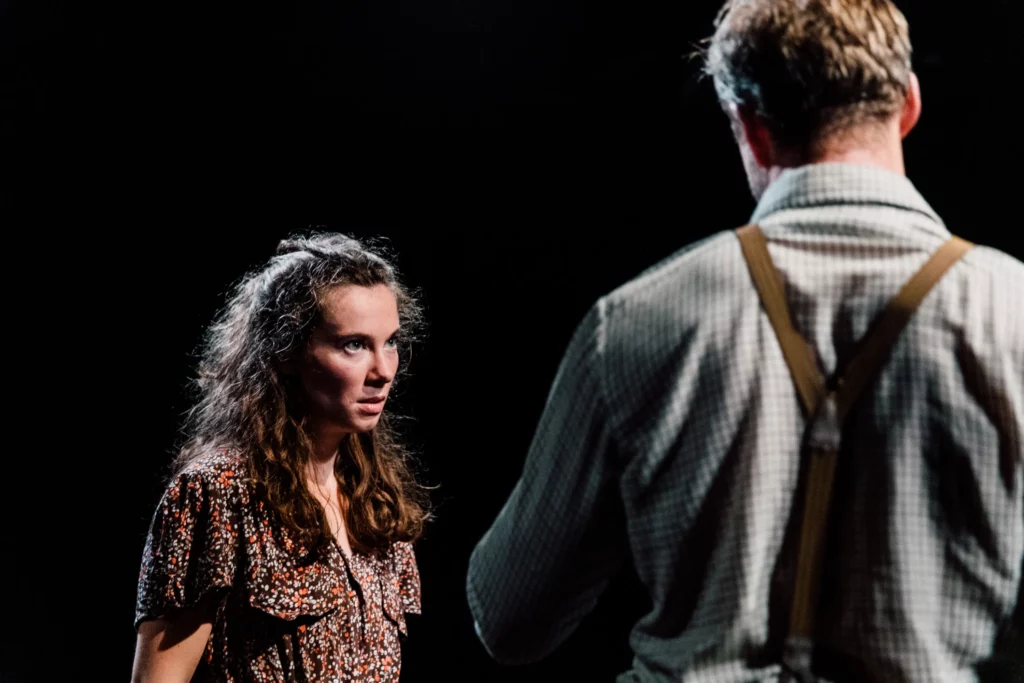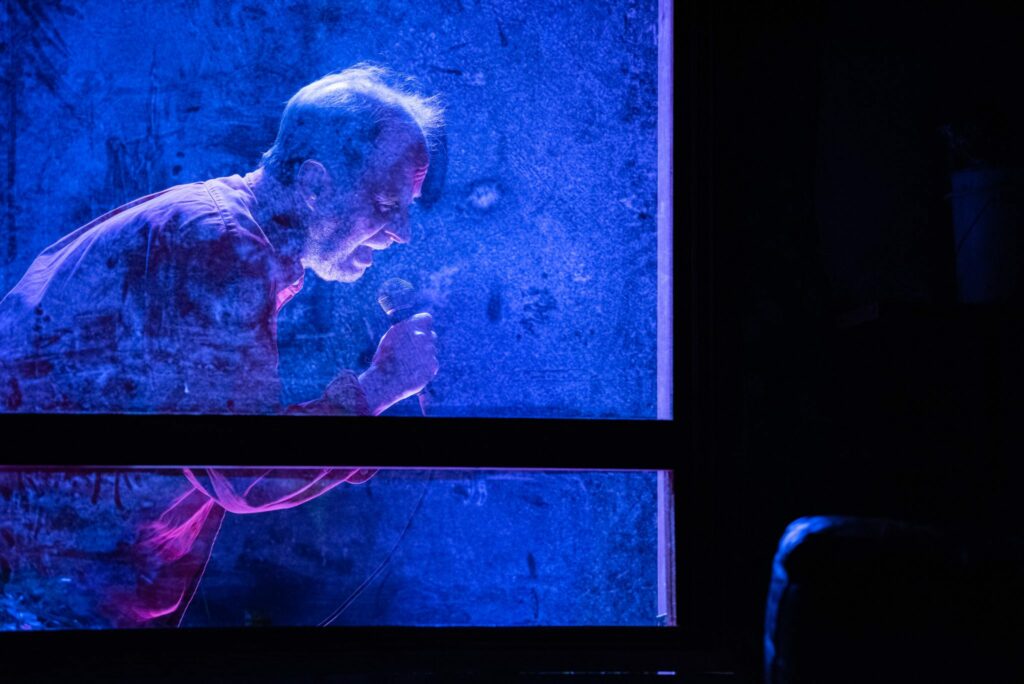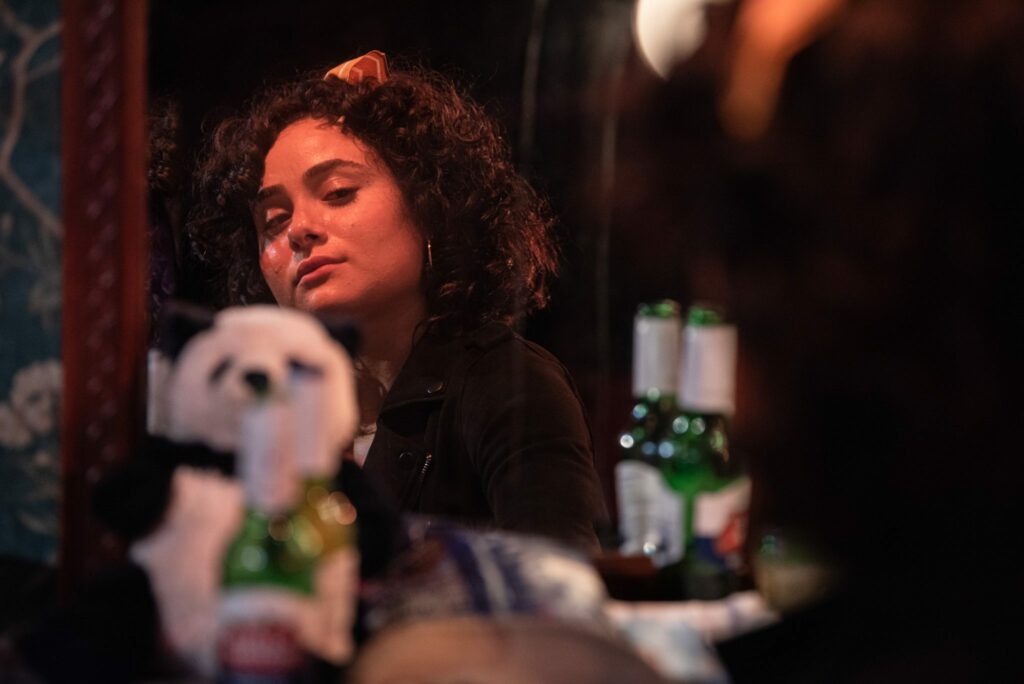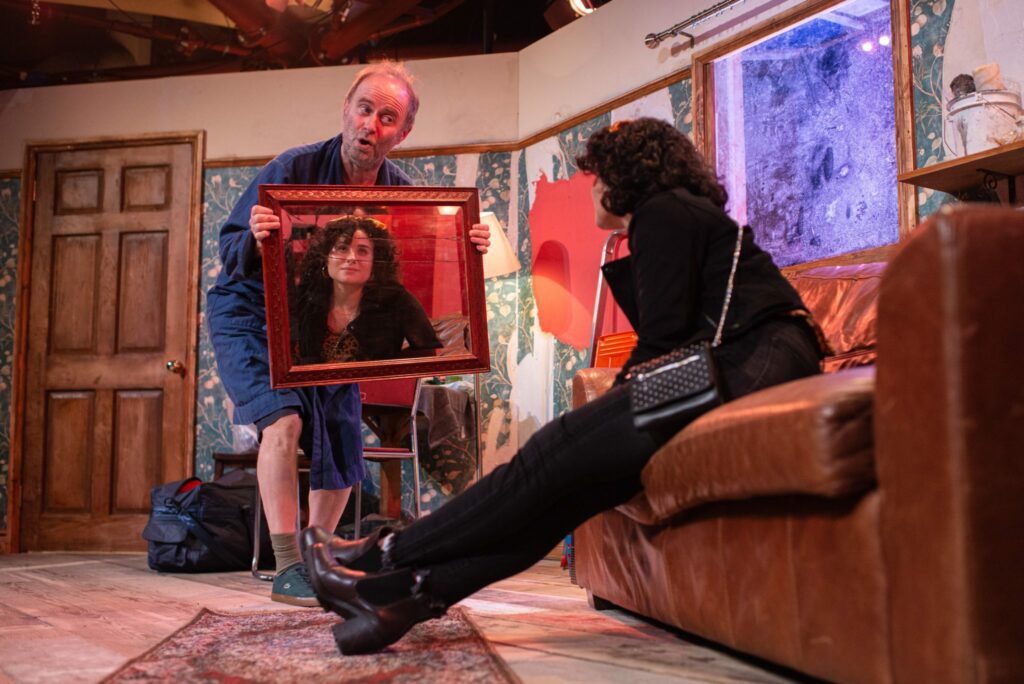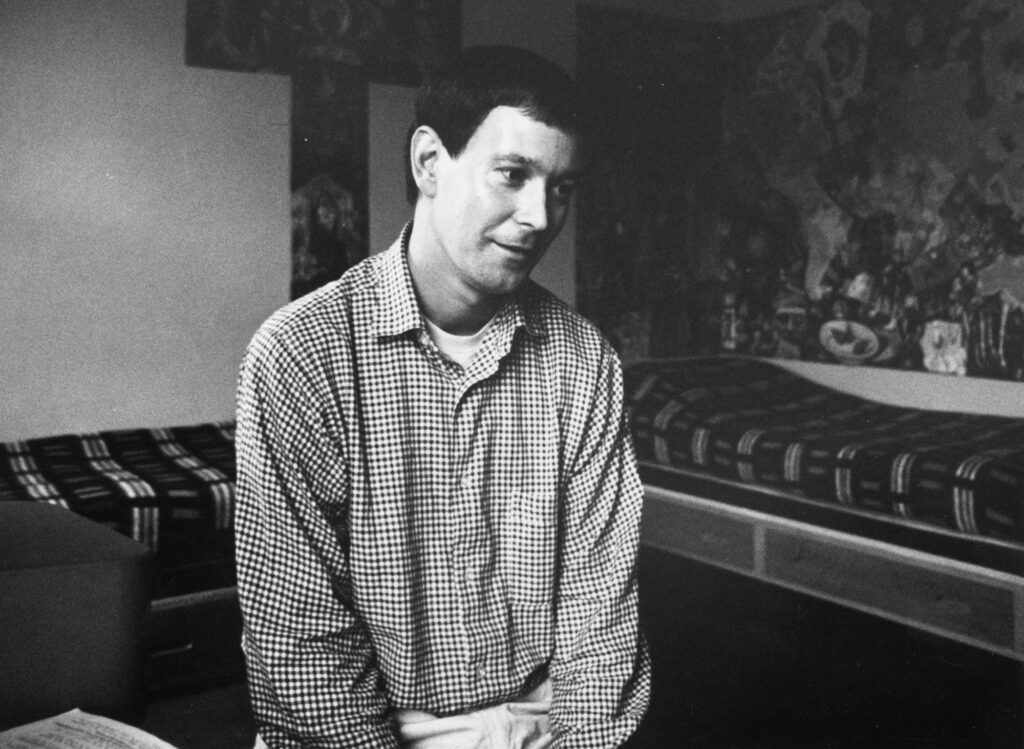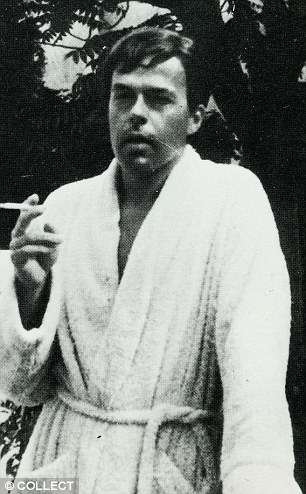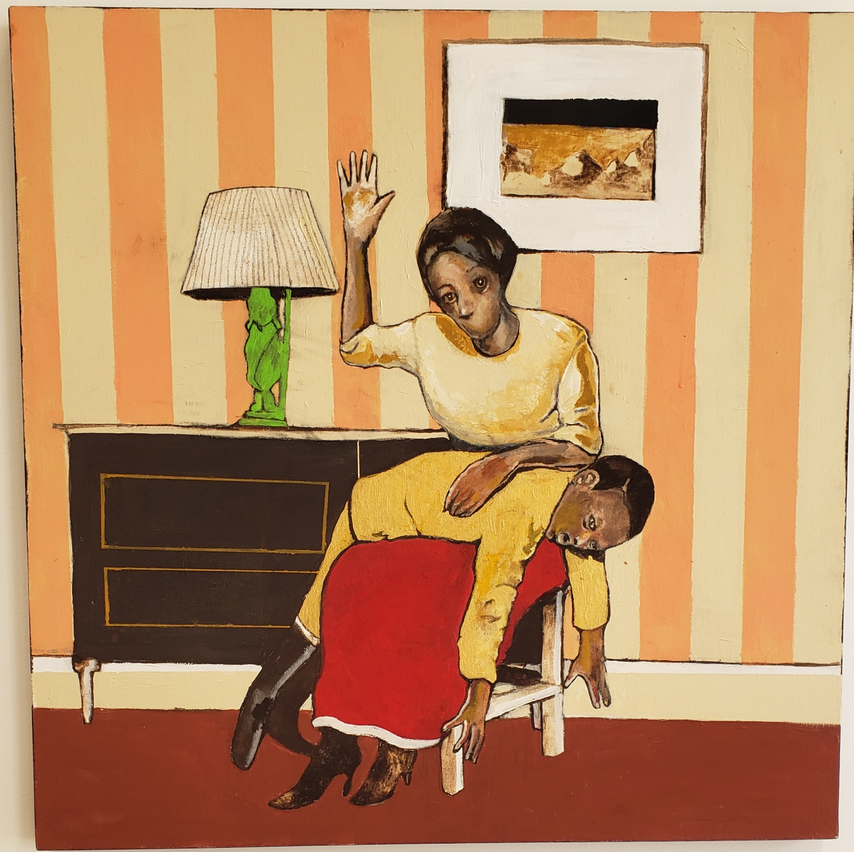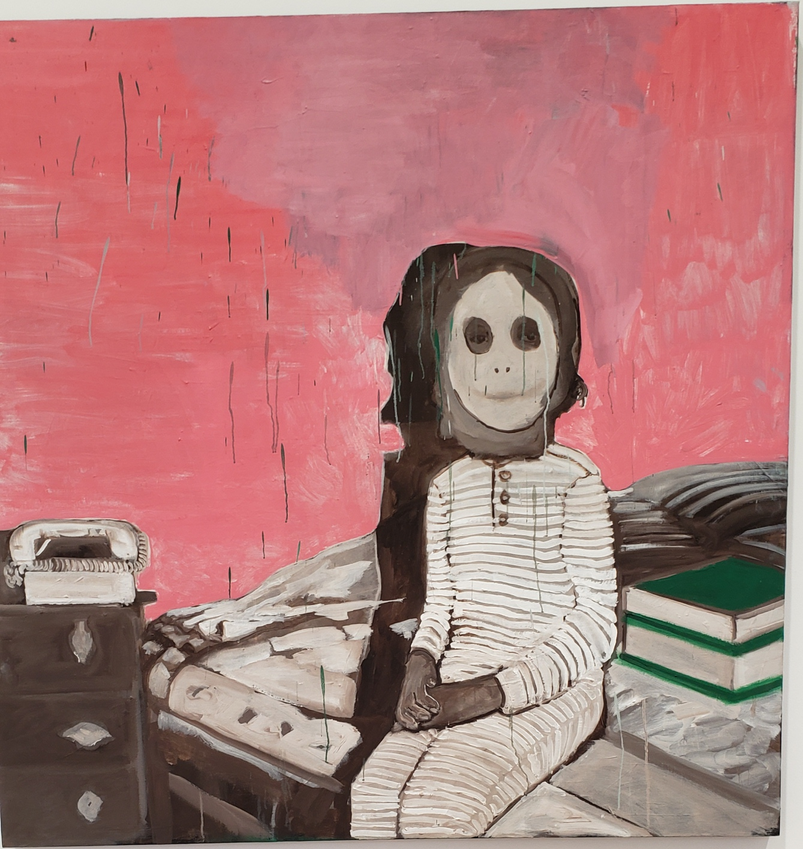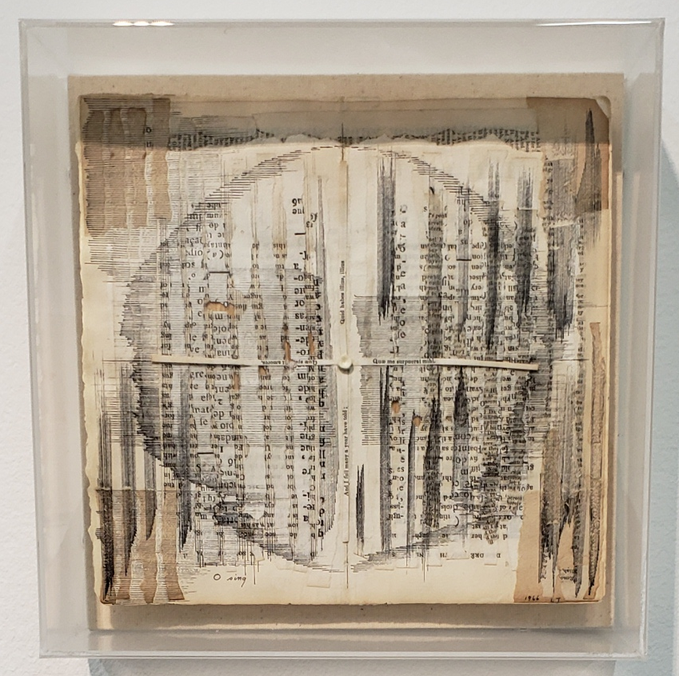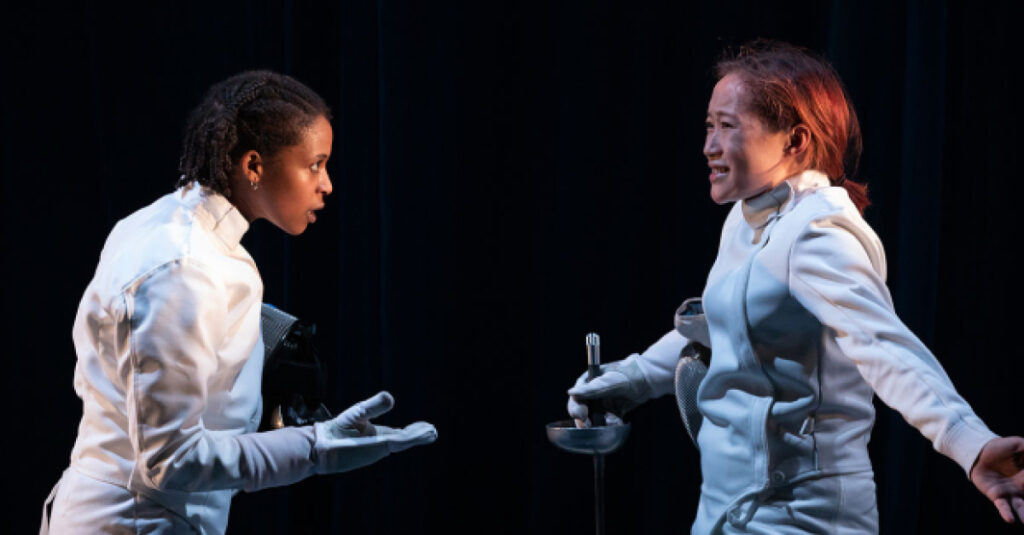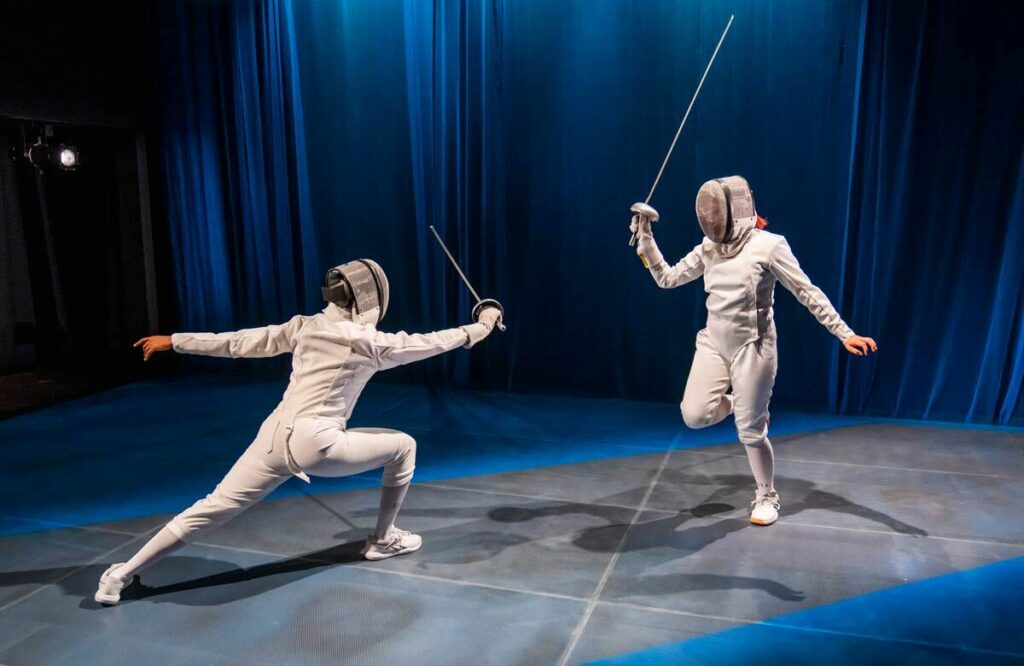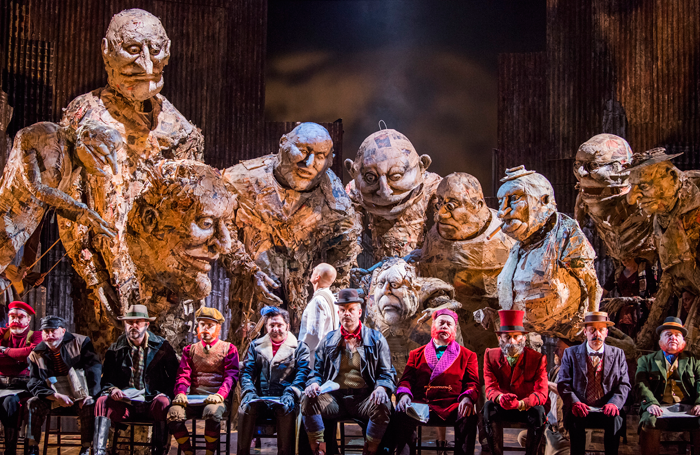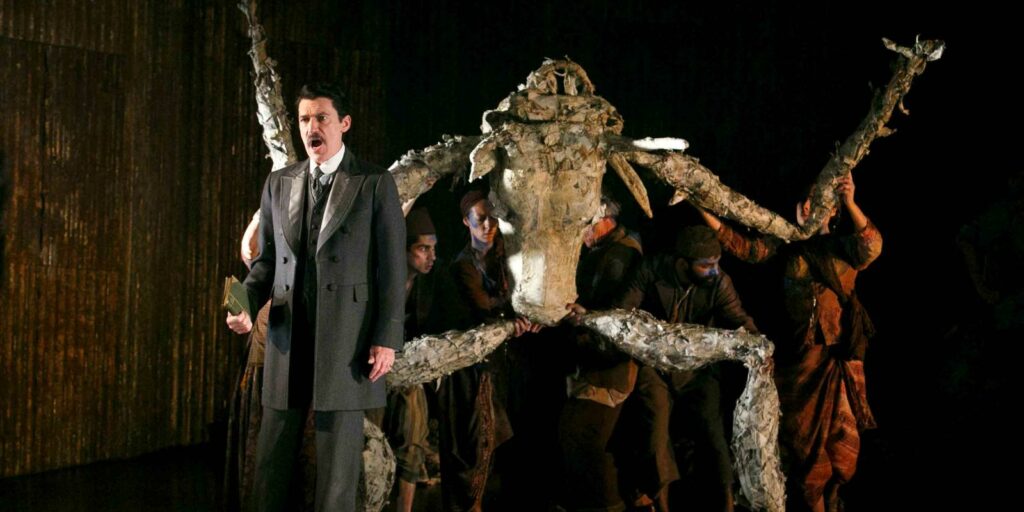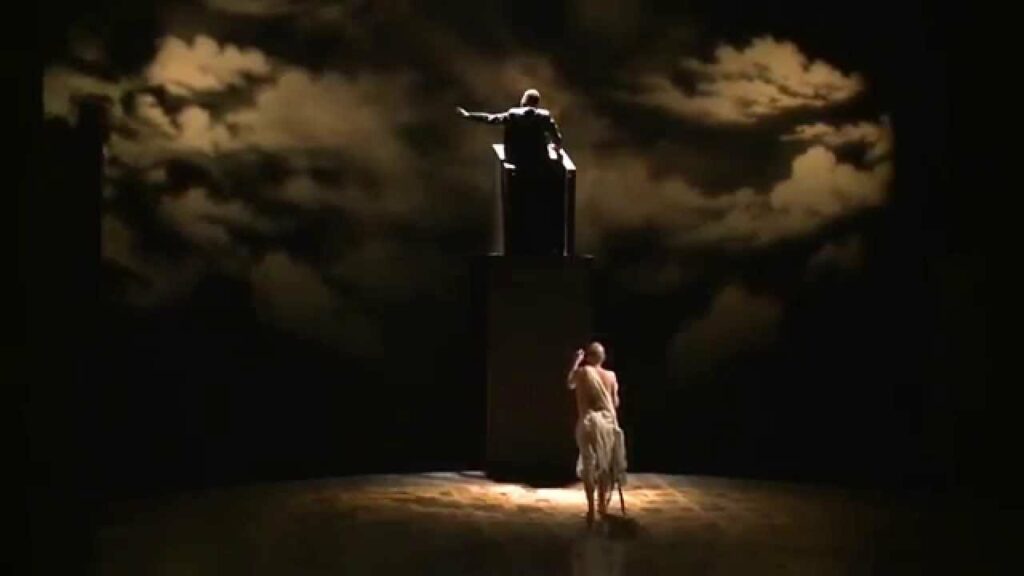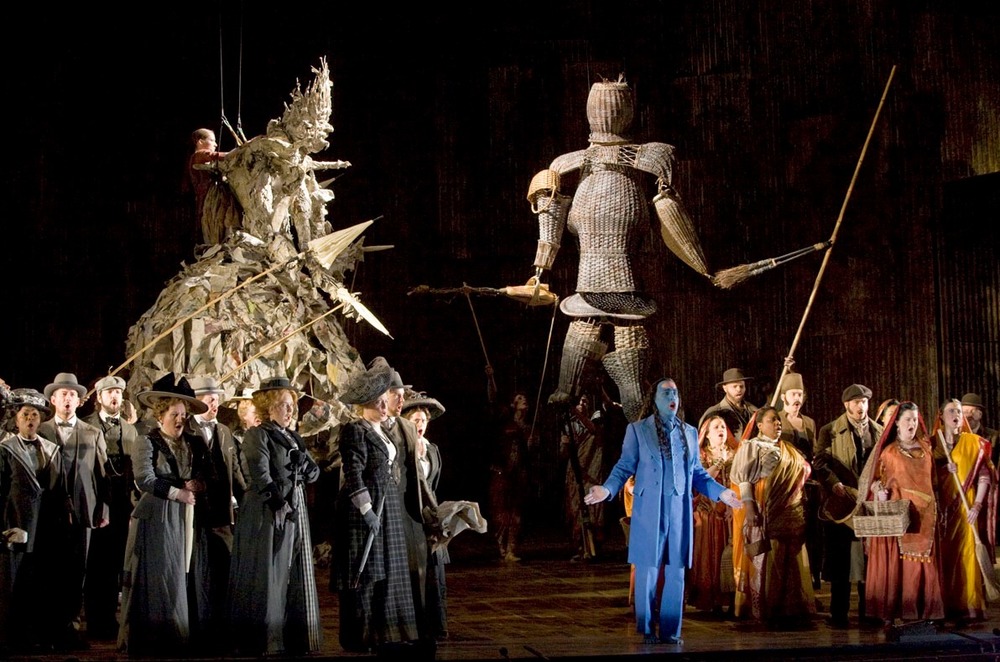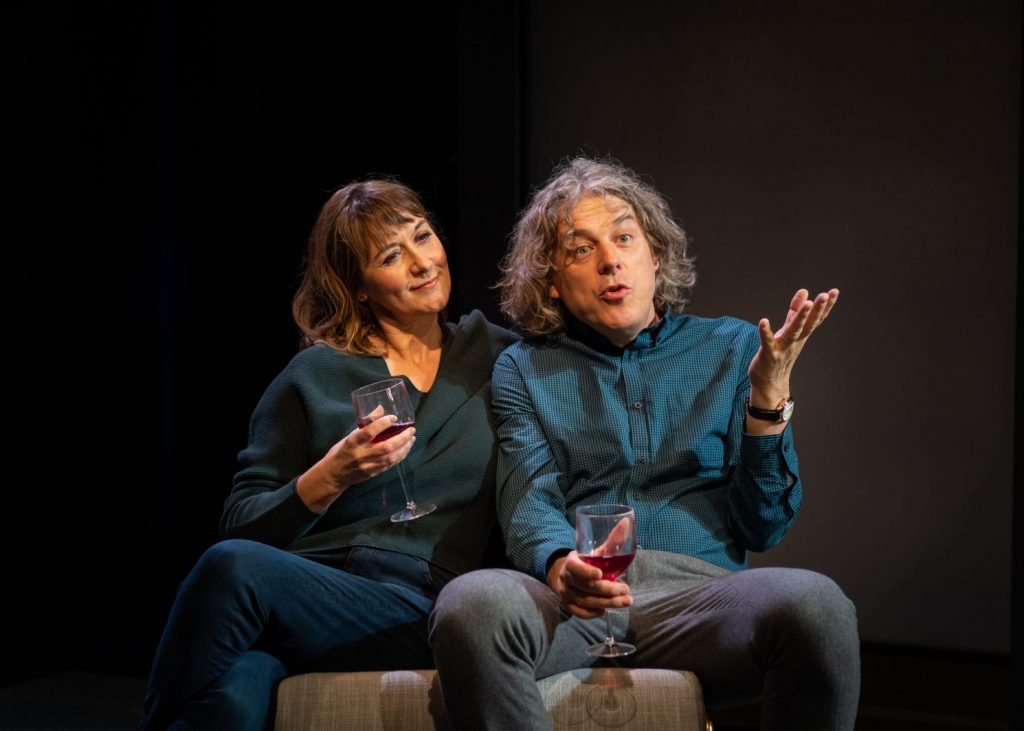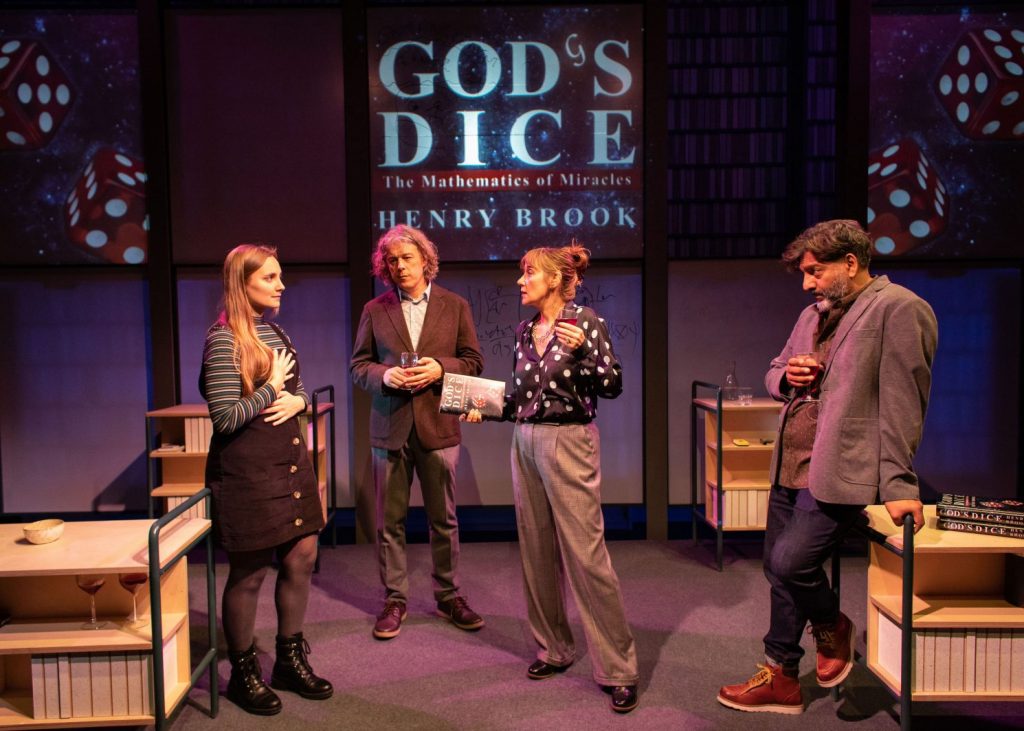
The taking of Peckham 345 returned Pawn home from Battersea Arts Centre late last night, following a rousing performance of Little Wimmin by the performance collective Figs in Wigs. This is a hot ticket, especially with the art school crowd, as evinced by attendance at this virtually sold-out performance.
The show opened with the five performers arrayed across the stage, hovering slightly above it (in street statue style), providing us with a preamble which felt more like an epilogue. As explained on their website, “Figs in Wigs are Rachel Gammon, Suzanna Hurst, Sarah Moore, Rachel Porter and Alice Roots.” That’s about the entirety of serious text on their “About” page. Here they are, mostly, the March sisters, of Louisa May Alcott’s book. I say mostly because there are several shall we say “deviations” from that story.
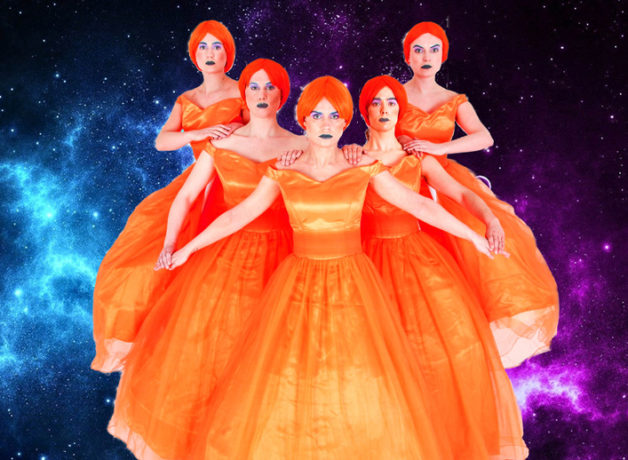
For one, they decided to kill off Beth almost immediately. By which I mean that, following the pre-epilogue, which lasts for 20 minutes, they take a 20 minute (really 25) interval, to reset the stage, and then action opens with lashings of death-metal music and the flashing of a monster surtitle reading “BETH IS DEAD!!” Subtlety reigns here.
This early interval provided many opportunities for people watching. There was a broad range of audience, from the terminally hip art schoolers, already mentioned, to mums with teenage daughters, families, older folk (like myself), etc. Much of what was worn was worn ironically. The crowd was steeped in so much irony, as a matter of fact, that almost all snark emerged effectively denuded, and plunked down on the floor without yielding offence. This was a strangely snark-free evening, especially given the crowd.
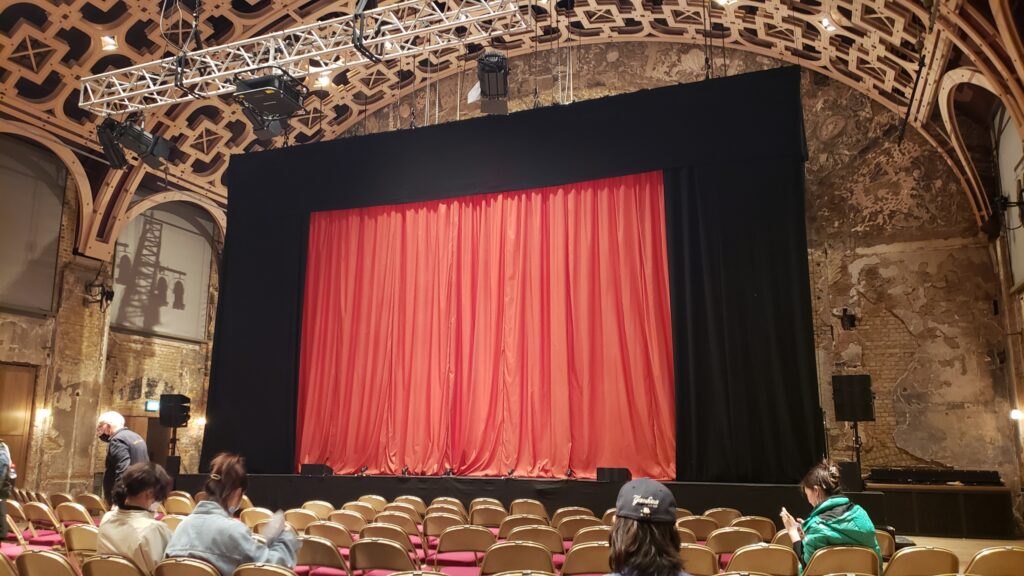
Action centered mostly around the March girls, as one would expect, but as caricatures of themselves, as one might expect. Much whinging about gloves and books, horses and masculinity. Consternation about lack of money, or embarrassment of excess. All in good humour and a feast of asides, muggings, pandering to the audience, and broad jokes. So far this is much as one might expect from a show which was introduced in flyers like this:
Presenting a live art, feminist ‘adaptation’ of Louisa May Alcott’s classic novel Little Women. Wild, irreverent and cosmically comical, this production dismantles the traditional canon to make way for the doomed future of humankind.
Prepare to laugh at the traditions of theatre and poke fun at people’s obsession with ‘the classics’ as the Figs use the story as their very own trojan horse, turning it on its head and mutating it into an unrecognisable cartoon catastrophe that talks about climate change, astrology and the infinite nature of the universe.
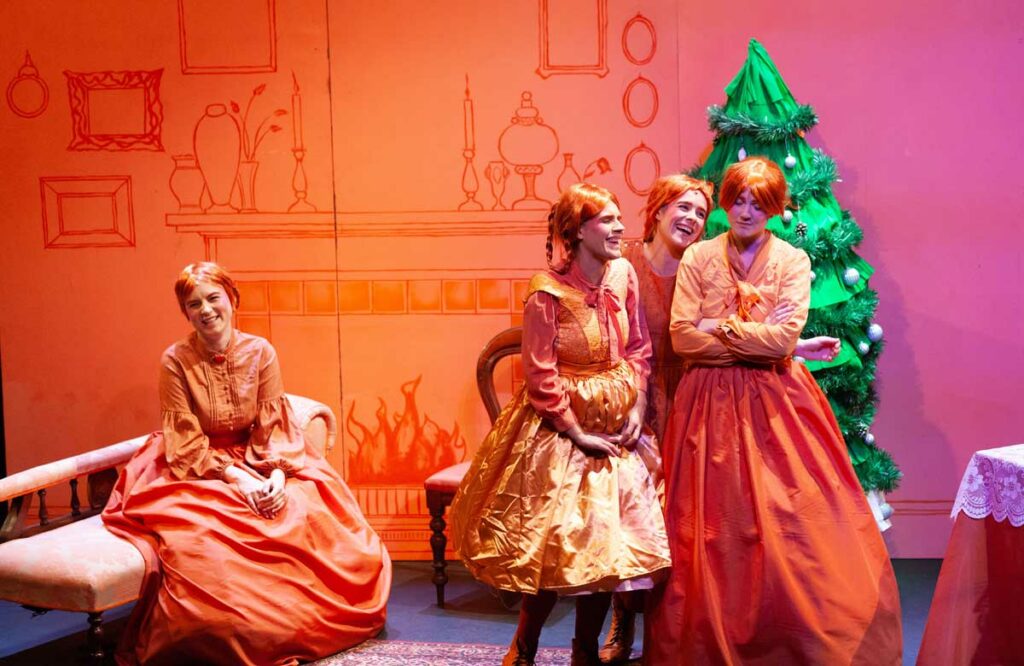
While the show starts off in brisk fashion, with humour flying and fierce action, it does slow down about a half hour in, and then spins off into a series of irreverent and some might say irrelevant, tangents. We’ve been warned, in the pre-epilogue, that there would be an ice sculpture, Margaritas, discussion of climate change, etc. We’re not left wanting on any of these fronts. And while they don’t all contribute to moving the piece along, they do offer some delightful stage tableaux, and even references to tableaux itself.
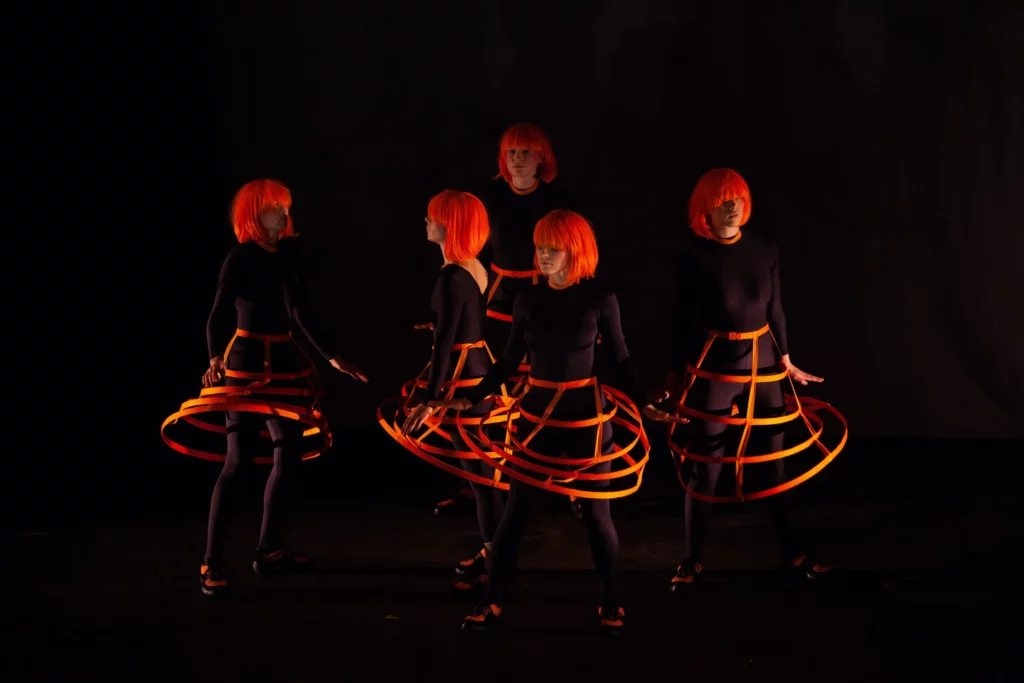
Perhaps the most entrancing of these divertissements is the dance section featuring the cast on a mostly dark stage, in black leoptards and bright orange skirt hoops (above). This was a lovely bit. Totally unconnected to anything else in the show, but… whatever.
The show wraps up with the ice sculpture and the making of the Margaritas, as alluded to in the proto-epilogue. I shan’t detail this too much, but to say that it was clever, and perhaps a wee bit too long. But, that said, the audience ate it up, and loved every minute of it.
This was a delightful night of performance art, very cheeky, and very self aware. Was it perhaps a bit too twee in some moments? Yes, it was. Was it perhaps a bit self indulgent? Yes, again, it was. Was it worth the £20 admission price? Yes, most decidedly it was. It was just sheer fun and folly, both badly needed right now.
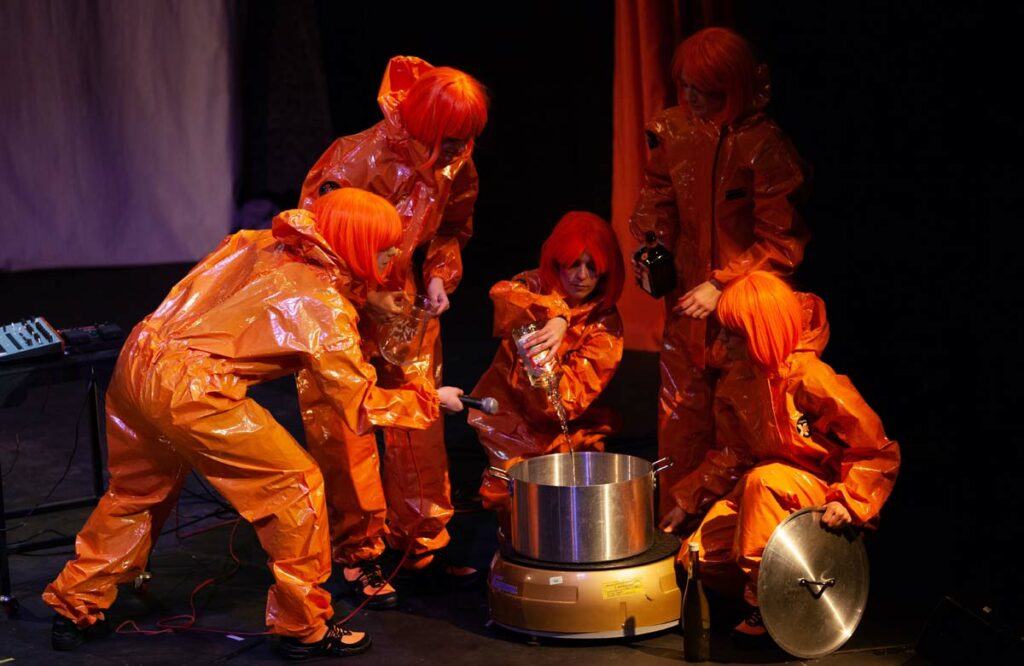
Other than the skirt hoop dance, perhaps the highlight of the evening, for me, was the placement of a jello mould on a vibrator platform, for no apparent reason. Once the crowd celebrated this bit of nonsense, one of the cast picked up the plate of jello and, holding the still vibrating mould in her hand, stood on the platform herself, and started into singing a French anthem, with the shaking of the platform putting the tremble into her tremolo. Just brilliant, silly, fun.


